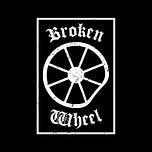- All the toil of man is for his mouth, yet his appetite is not satisfied. -

Guys, I’m not going to lie. I’m so happy were not talking about stillborn children anymore.
Let’s dive in =)
Why do you work so hard? I know when I first started working and made my first $100, I was thrilled.
It was more money than I knew what to do with, mainly because video games sold for $60 a pop.
Do we work for things? At some level, of course. We might call that labor for disposable income, i.e. labor we exert to buy things we don’t need.
I like to think about “disposable” purchases. For starters, does the entertainment I purchase have to do with escapism or am I trying to improve my life?
What about staples we take for granted but don’t need? Is my cell phone a disposable purchase?
Okay, perhaps I do need it for my work, obviously I couldn’t get most modern jobs without one. But do I need my job to survive?
The theorizing is fun, if not a little silly at times. If nothing else, performing the exercise keeps me focused on purchasing what I need and spending less on areas I’m unsure of.
The main benefit of recognizing disposable income is it shows you a part of your labor is disposable, and a part is necessary.
A simple explanation for why we work is this: the purchases that are necessary are why we labor. Everything beyond that is an added benefit.
Suppose your job decided to start paying you with a movie for everyday you worked. That’s a pretty terrible deal, even if you’re a movie buff.
Why? You starve. Right, I know. Very profound stuff today on Broken Wheel.
When Ecclesiastes says that a man’s toil is for his mouth, we might respond with a whole host of objections, and most of them are flat out lies.
Sure, we work hard for our families to give them better lives, but that really boils down to nourishment, for them and ourselves.
If all you could get for a full day’s worth of work was the meals your family could eat the next day, would you keep on working?
The answer is yes, and desperately so. In fact, for most of human history, this is what we did through subsistence farming.
Solomon follows this up with his typical exhortation. Despite laboring for your mouth, your appetite is never satisfied.
In fact, the only true thing that stops its craving is death.
Well, that and a carpenter from Nazareth.
Jesus explains this concept over and over to others, even to His own earthly body while he is being tempted in the wilderness.
One of the more explicit references to this truth is in John 4. After the Samaritan woman has left Jesus and His disciples at the well, the disciples beg for him to eat.
Jesus, who is tired from traveling all day and has had little food or water responds that he has food that they do not know about.
What is His food? To do the will of the Father.
You want to know something incredible? That’s the same claim in Ecclesiastes!
Why do I love this book? Because it does not ignore the dire circumstances we find ourselves in on Earth while simultaneously showing us the way to transcend this life through the promises of God.
Hold on tight; we’ll read chapter 12 soon enough.













Share this post